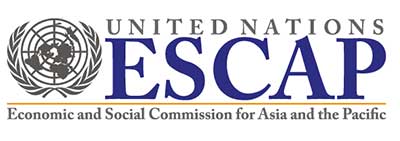UN Economic and Social Commission for Asia and the Pacific (ESCAP) report on fall in global trade during covid 19
UN Economic and Social Commission for Asia and the Pacific (ESCAP) which is the United Nations development arm in the Asia Pacific region recently released data on fall in global trade during covid 19 pandemic . This global pandemic has affected every corner of global and regional trade , investment and economies. The major findings of this organisation are :
- Worldwide trade is expected to fall by 14.5 per cent in 2020 and following that trend, trade in the region could contract by around 1.9 per cent.
- Despite a sharp fall in global trade in 2020 due to the coronavirus pandemic and lingering trade tensions, Asia and the Pacific is expected to perform relatively less badly than the rest of the world.
- The Asia Pacific the region's share in global merchandise export and import is expected to rise to an all-time high in 2020, to 41.8 per cent and 38.2 per cent respectively, up from 39.9 per cent and 36.9 per cent a year earlier.
- In the first three quarters of 2020, “greenfield” FDI dropped by 40 per cent compared to the same period in 2019, depressed primarily by the impact of lockdowns resulting in delayed and canceled projects.
- FDI is expected to remain below pre-crisis levels throughout 2021, with the future outlook “highly uncertain” and dependent on the duration of the crisis, the effectiveness of policies to stimulate investments, and recovery from socio-economic effects of the pandemic.
- The UN body also cautioned that the path towards a full trade recovery remains “highly uncertain”, with unfavourable macroeconomic conditions in many economies along with high unemployment, debt and deflation, and underlying structural challenges impeding a fast rebound. Smaller economies face additional obstacles due to the pandemic’s impact on travel and tourism, and remittances.
About ESCAP :
Established in 1947, ESCAP is the largest of the UN’s five regional commissions – both in terms of geographic coverage and population served – its membership spans from the Pacific island nation of Kiribati in the east, to Turkey in the west, and Russia in the north, to New Zealand in the south.
The Economic and Social Commission for Asia and the Pacific (ESCAP) serves as the United Nations’ regional hub promoting cooperation among countries to achieve inclusive and sustainable development. The largest regional intergovernmental platform with 53 Member States and 9 associate members, ESCAP has emerged as a strong regional think-tank offering countries sound analytical products that shed insight into the evolving economic, social and environmental dynamics of the region.
The overall objective of ESCAP is to promote inclusive and sustainable economic and social development in the Asia-Pacific region, with priority accorded to the implementation of the 2030 Agenda for Sustainable Development and the achievement of the Sustainable Development Goals.







